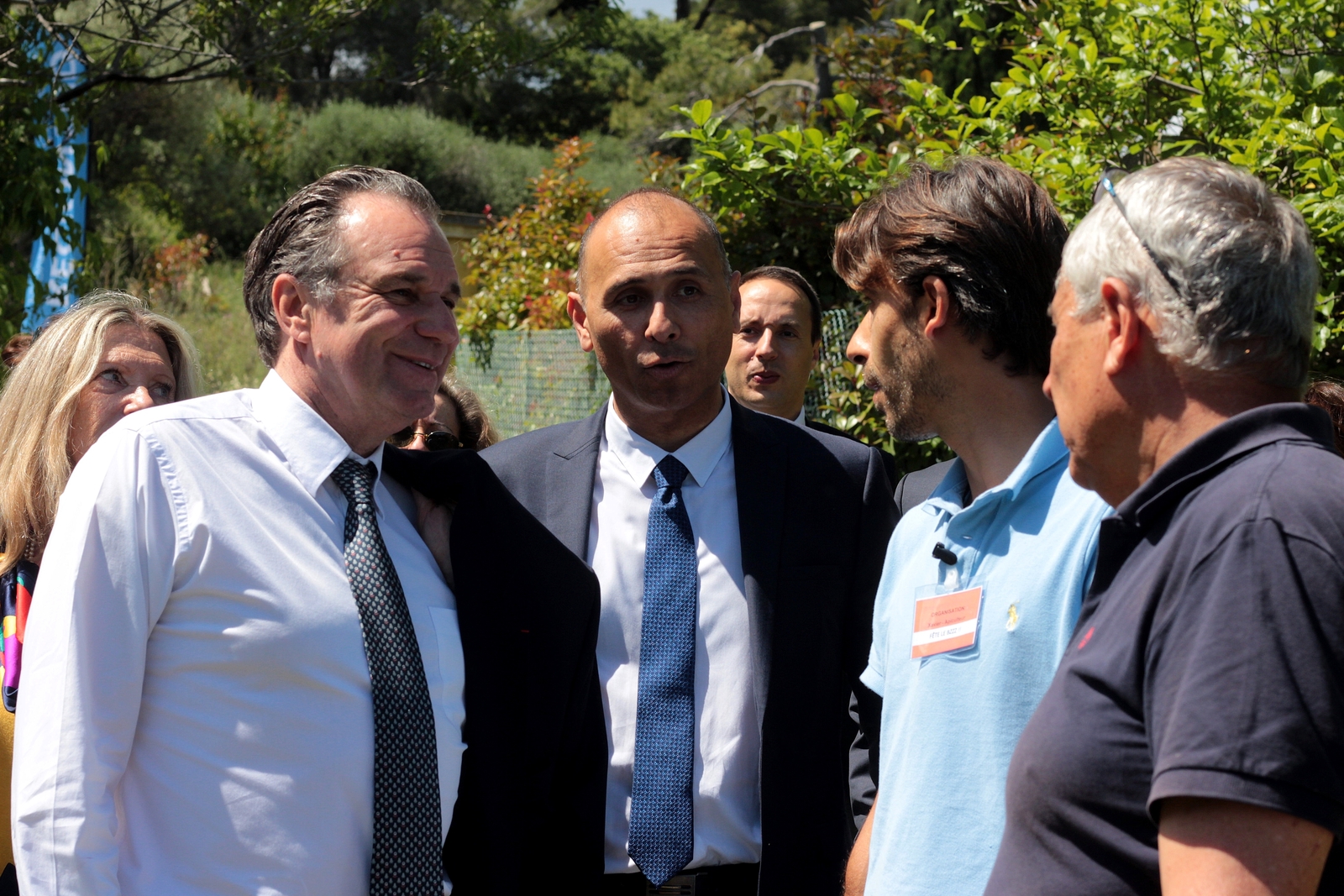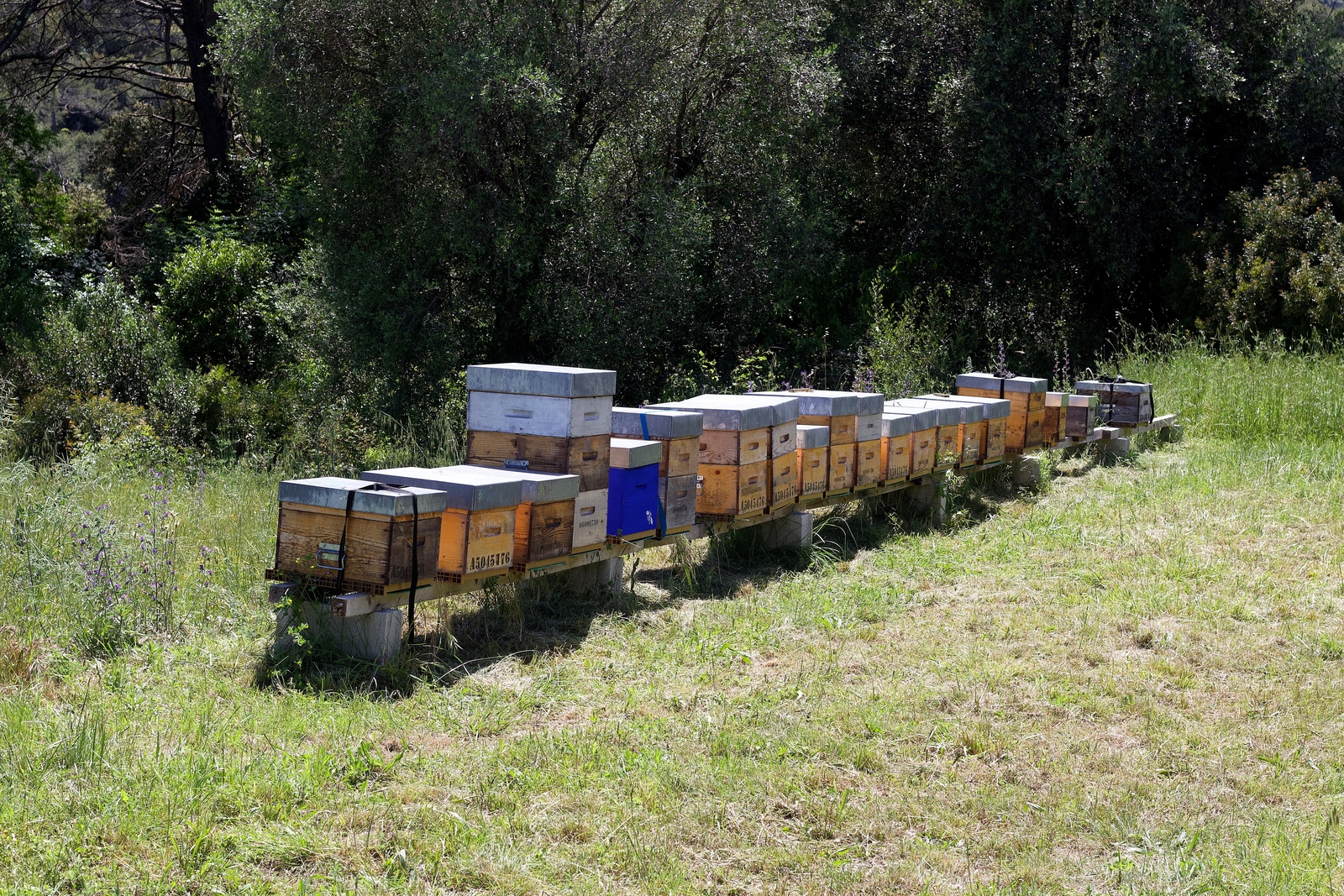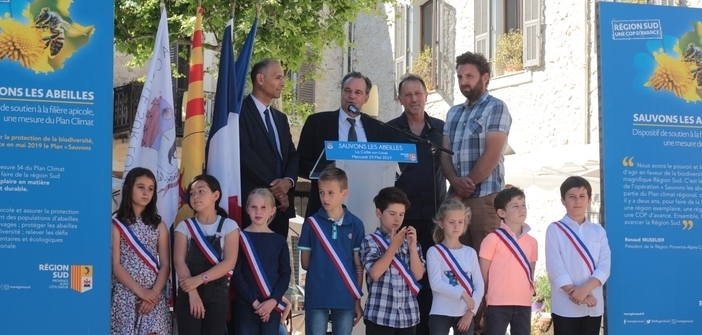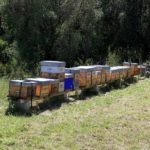This Wednesday, the President of the South Provence-Alpes-Côte d’Azur Region, Renaud Muselier, accompanied by Jean-Bernard Mion, Mayor of La Colle-sur-Loup and regional councilor of the South Provence-Alpes-Côte-d’Azur Region, visited the commune to present the “Save the Bees” Plan and to visit some beehives.
In 2017, the South Region implemented a climate plan called “A COP Ahead” to set an example in terms of sustainable development, to accompany and support the regional agriculture in this transition. This involves valuing local production and short supply chains, with the aim of increasing competitiveness and better protecting the health of consumers.

Beekeeping and the “Save the Bees” Plan
Beekeeping in the regional territory is a very important sector. We produce 2000 tons of honey per year (8% of the national production) and have 165,000 beehives. The 4500 active beekeepers make it the leading French region in terms of the number of professional beekeepers. Finally, Provencal honey benefits from the Protected Geographical Indication (PGI).
We have known for several years that bees are suffering terribly from climate changes, pollution, and the use of insecticides. Honey yields are less abundant, and bees experience decreased vitality and even premature death. “We observe about 30% mortality in beekeeping operations“, an apiarist said during the presentation of the Plan.
“Save the Bees” aims to implement an action plan for the apicultural sector and the protection of bees. More specifically, the South Region is going to allocate 700,000 euros per year to this initiative. Here are the various objectives and measures of the Plan:
– Maintain biodiversity in the territories of the South Region
– Support the structuring of the beekeeping sector and strengthen support for regional apicultural organizations
– Preserve the dynamism and identity of regional agriculture, at the heart of new economic, ecological, and food challenges
– Support organizations that enhance regional honey and quality approaches (PGI and Label Rouge)
– Contribute to the training of future beekeepers.

The Plan provides four aid measures (with criteria), which are as follows:
1 – Support for a technical apicultural service (grant with a maximum of 1000 euros per apiary)
2 – Support for material investments related to the creation, renovation, or extension of farm processing workshops (maximum of 10,000 euros per operation)
3 – Monitoring of bees’ exposure to pesticides (50,000 euros annually)
4 – Support for installing apiaries and mobile extraction and conditioning equipment (the maximum amount per project is 15,000 euros for investment and 5,000 euros for operations).
A profession in difficulty
Several professionals attended Renaud Muselier’s visit and spoke about the difficulties of the beekeeping profession and their expectations. “The most complicated thing today is to find locations for our hives. Urbanization makes our job more difficult, and we are losing land every year“, explained beekeeper Jean-Louis Lautard. Indeed, human activity is concentrated on the coast, forcing beekeepers to relocate.
The other threat to the sector is the Asian hornet. Its population continues to grow and it is very difficult to eradicate them, as nests are often hidden. This predator attacks and devours bees.
“What we want is to maintain the dialogue between politicians and professional beekeepers“, concluded Jean-Louis Lautard.




